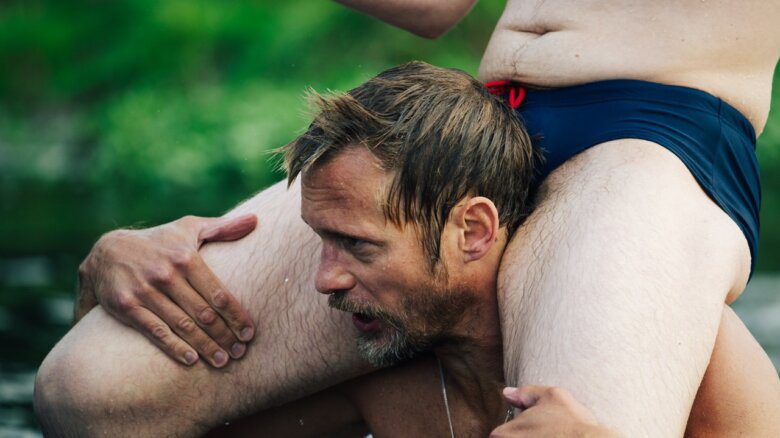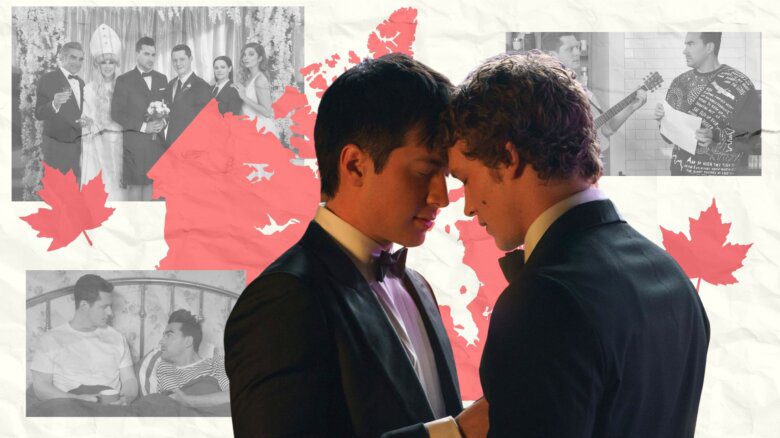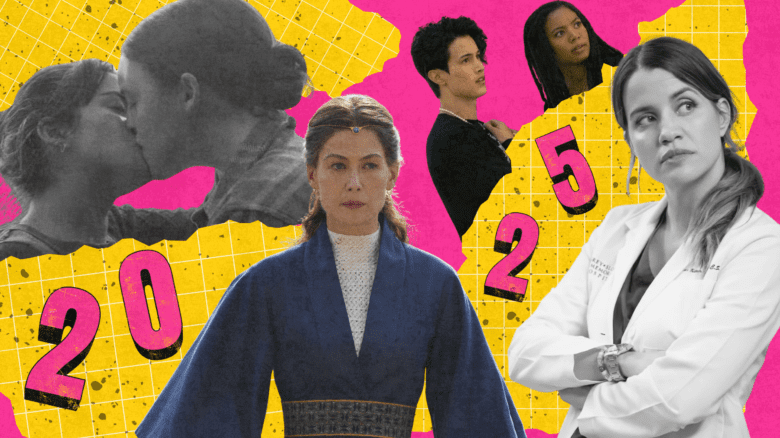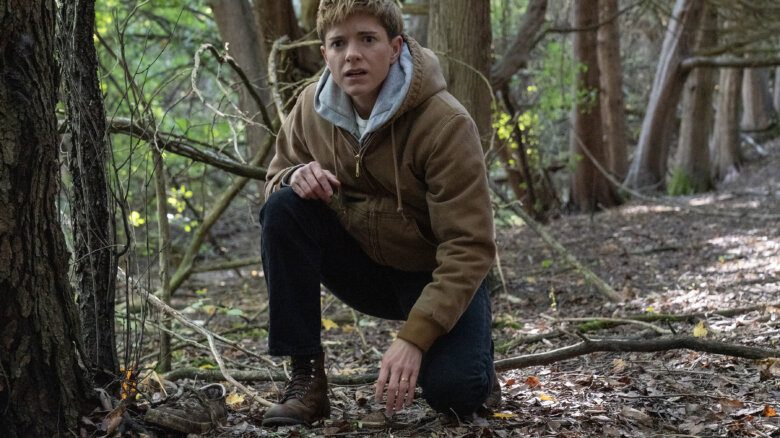Australian director Katie Found was frustrated with the LGBTQ2S+ films she grew up watching. Queer characters were always dying, she told Cinema Australia, and the films’ premises were almost exclusively about the experience of coming out.
Found decided to make the kind of film that didn’t yet exist, one that was unapologetic and celebratory of queerness. The result is My First Summer, an Australian coming-of-age film that tells the story of Claudia (Markella Kavenagh), a teenager living alone on a rural property in the state of Victoria while dealing with the grief of recently losing her mother. Claudia encounters Grace, a spirited teen who mysteriously appears at the isolated property.
The film never explicitly mentions queerness—or any sexuality, for that matter—a creative decision that liberates the characters’ journey from conventional labels. The film, which had its Canadian premiere at Toronto’s Inside Out 2SLGBTQ+ Film Festival, shows the power of young love, queer connection and the perils of being left all alone.
The whimsical character and adventurous spirit of Grace is the key to the film’s magic, and for the role Found chose Maiah Stewardson. Known in Australia for her breakout role in the quirky 2015 horror film Girl Asleep, Stewardson is a rising star and a big part of what has made the film a festival darling. Stewardson isn’t just an actor, though. She has her own take on the world and hosts a weekly podcast, The Social Distance Pod, where she discusses a slew of social issues.
Xtra recently caught up with Stewardson to talk about My First Summer, her podcast and biphobia.
The world of My First Summer treats queerness unapologetically. Were you raised in a similar environment?
Oh, beautiful question. I think my queerness and my coming out was so not a big deal at all, almost in an anticlimactic way. My family was so chill and cool with it. But being part of a queer film, with Katie Found being queer herself, was so special because it meant I got to celebrate what it means to come into who you are, and to sort of exist and love unapologetically. A really beautiful part of the film is that the queerness, sexuality, gender expression, none of that is explicitly mentioned. It’s a beautiful thing that just runs throughout the fabric of the film. And that felt very true to me because I feel like, in a lot of ways, my queerness and my journey with gender and sexuality has kind of just bubbled along as I have existed. So I think that parallel was pretty special.
I’m curious what immediately impressed you about the script and the story?
The thing that drew me so much to the script was that both of the characters felt as if they were jumping off the page, and I could see them exactly for who they were. And also the fact that with Grace, I was like, “I know who this person is already” because there are parts of me that are her, but there are also parts of me that wish I could have been that person.

How did working with a queer director like Found affect the process for you?
I had quite an incredible experience on set. I think Markella [Kavenagh, who plays Claudia] would attest as well that being able to give a performance we’re proud of was dependent on us being supported. For me, Katie’s approach was quite wonderful—not only was she queer, but she understood these characters and understood how marvelous and exciting and thrilling your first queer love is. I think she was able to depict it in a way that was truly very organic. No point to me felt like it was melodramatic or leaning into the male gaze, but rather things felt true, safe and authentic, which was important to me. I think Katie’s approach as a director, and having her ego so in check, she was never threatened by Markella and I offering different things or playing the script differently. That was also really quite amazing. It meant we were able to just explore in real time and discover really exciting things about the characters as we were filming, which was pretty cool.
Yeah, that’s awesome. Growing up, were there any queer characters in film or on TV, or even theatre who you identified with?
I didn’t have a lot of exposure to explicitly queer characters at all. In fact, of the ones that I did, they were probably quite problematic. My first sort of queer characters would probably be Disney characters that have been queer coded, so a lot of villains. I liked them because there was this interesting mix of feminine and masculine energy and presentation. But my favourite play of all time, and it’s so embarrassing, is A Midsummer Night’s Dream by Shakespeare. It’s such a queer play, and Shakespeare has his limitations now, as we have a modern context of examining his work. But I think the idea of gender expression and presentation and sexuality being quite fluid were all things that I just totally loved. What I want to bring to roles in the future is a fluidity, you know, whether it’s the expression or whether it’s a moral standpoint, or whether it’s just who you are then. I think it’s empowering when people can be fluid.
On your podcast The Social Distance Pod, you did an episode on biphobia. I’m wondering whether there are strategies or tactics that you would like to see used in storytelling so that biphobia can be avoided?
Yeah, I’m super passionate about avoiding damaging tropes with all young people, regardless of sexuality and gender. I think if you’re writing a bisexual character, it’s important to incorporate members of the bi community on board. If you’re having somebody come and read over your work, and that person is bisexual, pay them for their time and the emotional labour that they’re experiencing reading through stuff. Just trying to think about different ways that we can explore bisexuality and, at all costs, avoiding the narrative that bisexual people are more likely to cheat or that they’re slightly promiscuous or that they can’t make up their mind. Because actually, that’s bullshit. And I think if I was a lot kinder to myself, and was on top of those harmful stereotypes, I would have been a lot happier as a young queer person. But up until recently, I’ve spent the whole time trying to prove that I’m not what everyone thinks I am.I don’t want anyone else to have to experience that.
You’ve done a ton of work in both theatre and film. Did you find theatre to be more accepting of queer storytelling?
As a young person, I watched quite a lot of theatre. Ten years ago, when I was 13, there weren’t heaps and heaps of queer theatre that I was exposed to. I’m very excited about the kind of top-tier independent theatre that’s happening at the moment, particularly out of Melbourne and Sydney. In terms of my own identity, I’ve been quite hesitant in both the theatre and the screen world to be explicit about my sexuality. When My First Summer came out on Stan [an Australian streaming service] and my Instagram following suddenly went from 1,000 people to 8,000, I was like, “Fuck, everyone is going to know me as the queer person, and then I’m only going to get queer roles, and this is all gonna be a disaster.” And it turns out that actually, it may not make any difference. I’m still getting auditions for characters that I’m not personally aligned with at all. So it’s not like the industry’s like, ‘You are only able to play a lesbian.’ But I was worried about that.
How does it feel knowing that My First Summer premiered at Inside Out in Toronto, as well as at other festivals across the world?
It’s so, so weird. I’m so thrilled that other people get to see the story. I will admit that I was a bit worried at the start, because it’s such an Australian-looking film. And I thought, “Is this only gonna be relevant to Australian queer people?” But I found through talking to people who are die-hard fans of the film that even if you’re not queer, and even if you’re on the other side of the world, this story is ultimately about connection and finding out who you are meant to be. And it’s about young people. That kind of thing is quite universal, which I think is special. I’m very excited for Canadian folks to get to see it.
This interview has been edited for length and clarity.
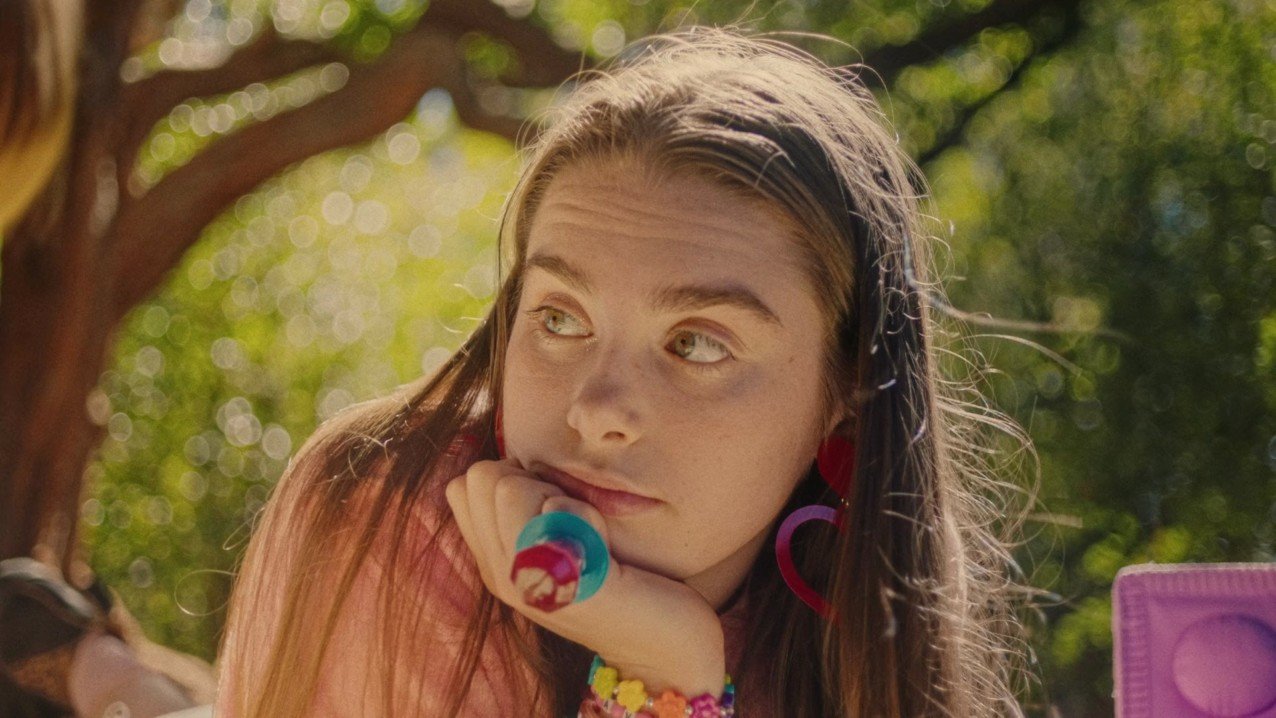

 Why you can trust Xtra
Why you can trust Xtra